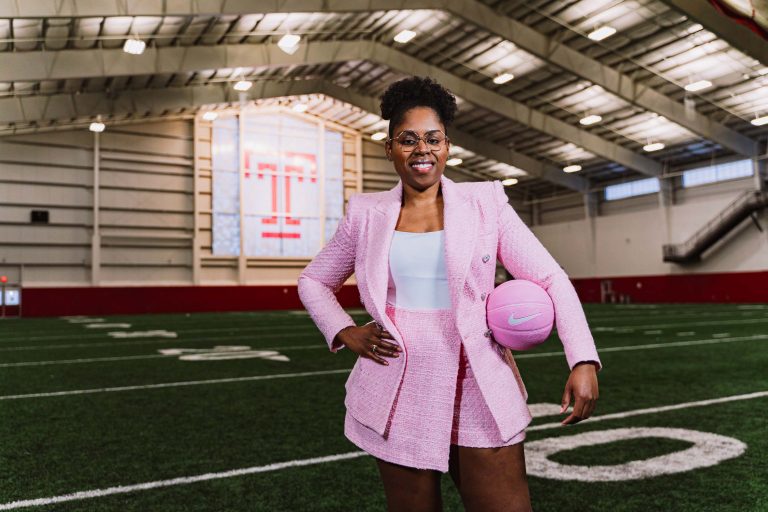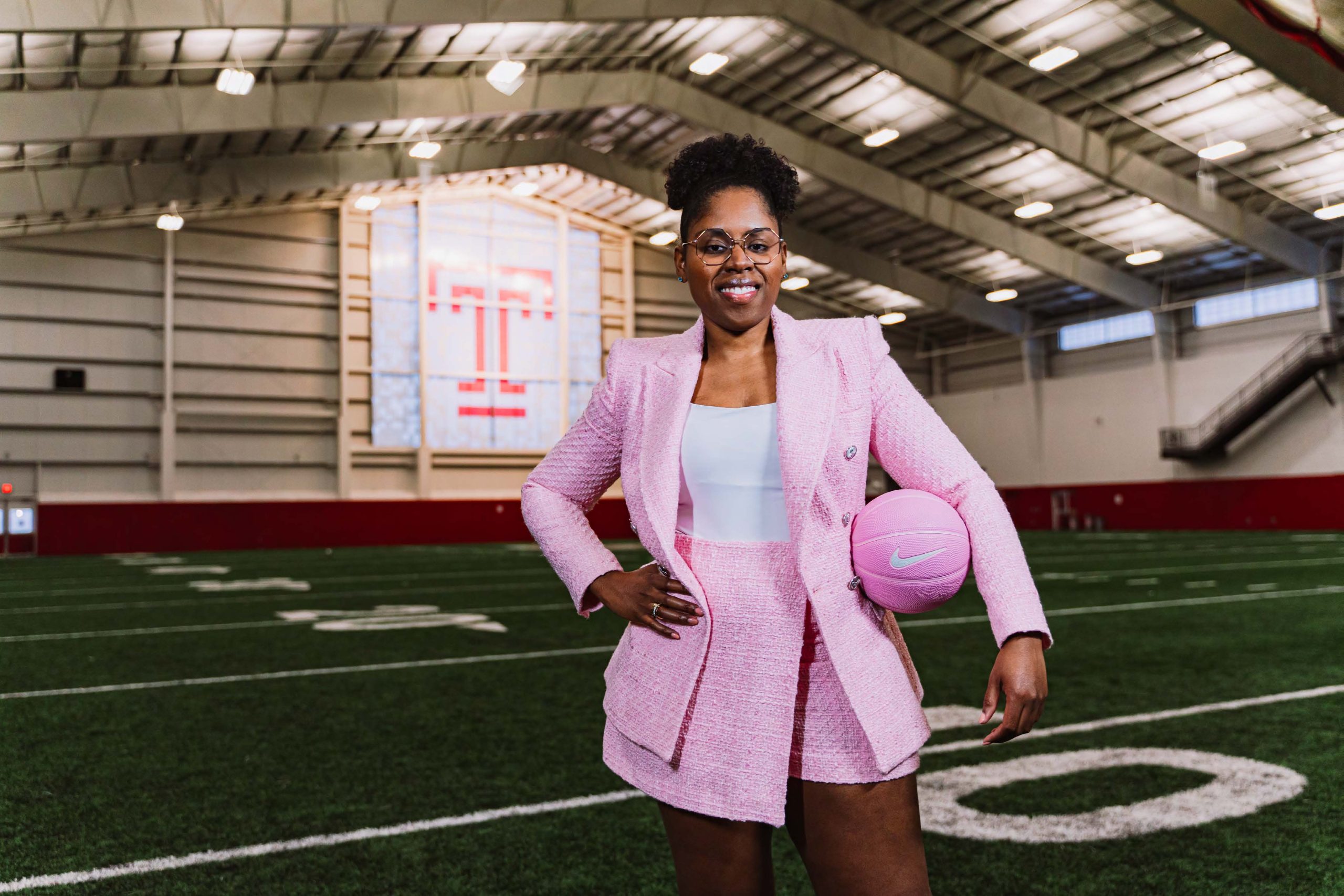After an exceptionally varied career in sport management at the NCAA and professional levels, Assistant Professor of Instruction Ashley Gardner joined the School of Sport, Tourism and Hospitality Management (STHM) in fall 2022. Gardner worked in a range of roles in the industry for a number of years before pursuing her PhD in sport studies and socio-cultural studies at the University of Tennessee in Knoxville. We sat down with her at the close of her first semester to find out about her research interests, insights on the sport industry and how STHM students set themselves apart.

You have a dynamic relationship to sport: as an academic, an instructor and an industry professional. Tell us about your research focus in management within sport organizations.
Broadly speaking, I’m interested in racial ideology immersed in sport structures. I focused my dissertation on the hiring practices of an Olympic organization. Among a staff of 200, there were only four people of color and I was interested in how the mechanism and structures in place within the organization contributed to these issues, as a means to identify what areas exactly contributed to this inequity. I still serve as a consultant doing similar work for Olympic organizations.
What classes are you teaching within the Department of Sport and Recreation Management?
This fall I taught “Sport and Society” as well as “Research in Sport and Recreation.” Next term I’ll be teaching a course called “Dimensions of Diversity: What’s the Brewing in the Melting Pot?” My students in the fall “Sport and Society” class were eager to talk about issues of race and their critical thinking also challenged me in my thinking. They kept me honest—which makes me a better instructor.
What were some of your roles before entering sport as an academic and a researcher?
While I was earning my master’s in sport management from the University of Michigan, I was an operations intern for the Michigan football team. I also spent a month interning for the 2019 Nike Tournament of Champions—exceptional in terms of how generous they were to the interns with swag! Before that, I interned with an MLB urban youth academy affiliated with the Cincinnati Reds. And I was an equipment assistant for the 2015 Special Olympics in Los Angeles.
You’d worked with Assistant Professor Bradley Baker, STHM ’12, FOX ’17, in the past—outside of higher education?
Yes! My first job after earning my master’s degree was as the national events coordinator for USA Fencing. We had eight or nine national tournaments a year and over 150 regional tournaments every season. One of my responsibilities was handling all the travel for support staff. Bradley would referee at national tournaments. But it wasn’t until I came to STHM that we reconnected!
What was your relationship to sports growing up and what are your favorite teams?
My father started out as a high school basketball coach and when I was little he’d have me hang out by the bench during practice and games. Despite growing up in a suburb of Chicago, I was an L.A. Lakers fan because my grandmother was devoted to all things Magic Johnson! Now I’m a fan of whatever team has LeBron James. But women’s basketball continues to be big for me, especially the Chicago Sky. I was an intern in their marketing office when I was at Hampton.
As someone who researches inequity in sport, can you share some thoughts on the aspect of STHM’s five-year Strategic Plan to foster a more diverse, equitable and inclusive culture?
I think the inclusive culture pillar of the Strategic Plan is fantastic and I recognize all the work that Professor Debra Blair and others have done in setting up and running the programs of the Office of Diversity Equity and Inclusion (DEI). I’m most interested in what we can do in terms of implementation, such as with hiring practices. In higher ed and in the culture in general, we now articulate many aspirations, initiatives and plans. What’s most important is the follow-through.
Given your area of expertise, what would you say can be overlooked in discussions about race and diversity in sport?
After 2020, many entities suddenly publicly proclaimed that “Black Lives Matter” and, in turn, brought forth many statements and commitments to DEI, specifically race. Which was cool because It helped start the conversation. But now we’re a few years removed and there’s been a lack of follow trough. I’m going to always go back to my research area: addressing the lack of racial diversity in staff positions in sport organizations. Where are the effective mechanisms addressing these racial diversity issues in sport organizations? Where is the programming? Where are the policies? Where is the adjustment of practices? Where are the structural mechanisms to uproot racial inequity? Some organizations like the NBA have implemented a fellowship for people of color to develop a pipeline. But what about these other sport leagues and governing bodies that remain disproportionately white?
A student came up to me this fall who’s interested in looking at how issues of intersectionality are impacting the WNBA and I share that interest, so I’d like to pursue some work in that area.
What have you learned about STHM students over this first semester?
I find that STHM students are impressive and show a unique level of commitment. Having taught at other large universities, I find the students here are serious about their degree and very involved— whether it’s working in Temple Athletics or interning for a Philly sports team. After teaching in the South, it’s been interesting to learn and gauge the pace and rhythm of the students at a school and city that are so different. And I’ve already found that, at STHM, every class has multiple superstars!
